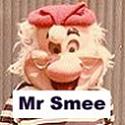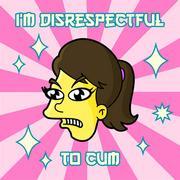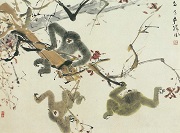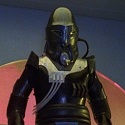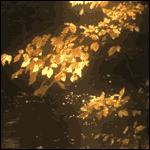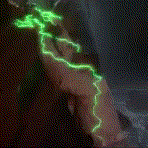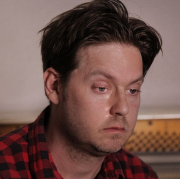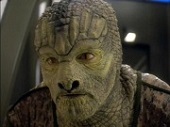|
Humerus posted:I started The Count of Monte Cristo the other day and for a book that's ~1100 pages I'm actually surprised at how fast the plot is moving. Dumas wanted to waste no time in getting to the actual plot and I really appreciate that. I feel like I've read too many books where I get halfway through and the main plot hasn't even started. Yeah, I think if I was asked to name one book that feels far shorter than its length I would choose that one. Super entertaining
|
|
|
|

|
| # ? Apr 20, 2024 05:20 |
|
That said, I think the best place to start with literature is short fiction and short novels. Like yeah, the Sot-Weed Factor is funny but it's like a bajillion pages long. Is there a short story thread?
|
|
|
|
Humerus posted:The new(ish) one from Penguin Classics, as I understand it's the only actual unabridged version in English he's specifically saying that it was considered a book for children based on the bowdlerised versions that minimised those parts.
|
|
|
|
PeterWeller posted:Death comes for the Archbishop is fantastic. It has a lot of appeals for genre readers: sweeping scope, action/adventure, deep history, and a spooky cave. It was the spooky cave that sold it. This was a great read. Thanks everyone for that rec, even if it wasn't for me.
|
|
|
|
My two favorite movies are Pink Flamingos and 2001: A Space Odyssey. I see no contradiction in this. Before getting into 'serious' lit I was reading Star Wars and World of Darkness expanded universe stuff, so I was definitely reading more 'genre' lit. There are lots of fun plots and I liked the stories growing up, and I can still fondly look back at that time as seeing cool space adventure and vampiric blood magic, in futuristic (yes I know it was "a long time ago") and semi-historical settings (VtM: Dark Ages), respectively. Dark Ages (I think it was the Nosferatu book) made me interested in what the hell was going on in Constantinople around it's fall, which ended up making me go into history for my undergrad. Don't like a book? It's fine and it doesn't make you dumb or a bad person or mean you have bad taste or people are pretending to like it. Vladimir Nabokov hated Don Quixote! Some of my first lit books that I enjoyed and my journey: About 10 years ago and was playing Fallout 3. I wanted some post-apocalyptic stuff and was steered towards A Canticle for Leibowitz and The Road, both of which I found pretty accessible and interesting. The latter got me into other McCarthy books (at this point I've read all of his books and screenplays and think The Road is his weakest work), which got me to reading Blood Meridian. Do you like surprises and violence in a western/anti-western setting? You may enjoy this book. Do you like to laugh? Would you be interested in watching an old man gently caress up a puppet show? Throw up into his assistant's face after getting his teeth smashed out? Try out Don Quixote (I read the Edith Grossman translation). Liked Don Quixote? You might want to check out Rabelais' Gargantua and Pantagruel, which is almost like a cartoon. Re: Moby Dick, I just dived in without having read much other literature. I was happily surprised to find out that it was like jumping in the water: the first leap is the hardest, and after you let it wash over you. It's a straightforward adventure story, with lots of cool facts about ships and whales. God drat do I love chapter 32: WHALE FACTS: There is one thing and one thing only that everyone, everywhere, we all can agree on about whales. Without doubt. Without question. Whales ARE fish. There's also a celeb-heavy online reading at http://www.mobydickbigread.com/, including John Waters (sadly he doesn't read the chapter where they squeeze the sperm and the sailors' hands keep touching), David Attenborough and Stephen Fry. I had a great time, and without a huge library of books read at that point. I read it concurrently with Kim Stanley Robinson's Mars Trilogy, which I wouldn't necessarily call lit (but I like that he included political economy into sci-fi). I'm happy I read both, and I got different things out of each. Shakespeare is also really good, but like me, you probably encountered it by 14-17 year olds being bored and reading it in turns having not read it before (loving Romeo and Juliet read by freshmen made me want to die when I was in class). Try NOT reading him! gently caress reading plays if it's possible to see it performed! They're plays, so see if you can find a play of some of his works online. Good actors make it interesting, IMO, since they're experts on their character's motivations, know what to emphasize, pause at the right moments and use body language to get the message across. Shakespeare wrote his plays to be enjoyed by the poor as well as the rich (he wanted his company to make money, after all), and the modern Shakespeare would have had weed jokes in his plays, along with the dick, fart and cuckold jokes that he already has. My first Shakespeare play that I saw performed was Richard III, and all of the criticism I could manage at the time was "Wow this Richard guy sure seems like a real rear end in a top hat." Unless you're going into literary criticism or are still in school, you will never have to write about what you read again. Most of all, read what seems interesting to you. If you're not getting something out of a book, then drop it and move on to something else. Check back in a year or two and see if your tastes have changed. If not, then it's fine--it may just not be what you like. I could get the best pb&j sandwich the world has ever created and I wouldn't like it, and it's fine. Remember: Vladimir Nabokov hated Don Quixote. Edit: thinking back to high school, I read a lot of Kurt Vonnegut. He's very funny and is a good writer. You can knock one out by reading an hour or two before bed in less than a week. Cat's Cradle and Slaughterhouse Five are two of my favorites. The North Tower fucked around with this message at 22:42 on Jul 16, 2020 |
|
|
|
Just finished name of the rose. Super good, might re read. Umberto eco owns in general
|
|
|
The North Tower posted:Re: Moby Dick, I just dived in without having read much other literature. I was happily surprised to find out that it was like jumping in the water: the first leap is the hardest, and after you let it wash over you. It's a straightforward adventure story, with lots of cool facts about ships and whales. God drat do I love chapter 32: WHALE FACTS: There is one thing and one thing only that everyone, everywhere, we all can agree on about whales. Without doubt. Without question. Whales ARE fish. There's also a celeb-heavy online reading at http://www.mobydickbigread.com/, including John Waters (sadly he doesn't read the chapter where they squeeze the sperm and the sailors' hands keep touching), David Attenborough and Stephen Fry. I had a great time, and without a huge library of books read at that point. I read it concurrently with Kim Stanley Robinson's Mars Trilogy, which I wouldn't necessarily call lit (but I like that he included political economy into sci-fi). I'm happy I read both, and I got different things out of each. The "Whales are Fish" part is great because not only does Ishmael loudly proclaim he's ignoring Linnaeus, but those sections (cetology, et all) usually come after some major fuckup (the first landing, etc) and represent Ishmael trying to gain some semblance of rational understanding over the sheer brutality and foreboding of the voyage. It's important to note that he just kind of gives up near the end as Ahab finishes his mad quest. I need to stop because otherwise I will not shut up about Moby Dick.
|
|
|
|
|
TheGreatEvilKing posted:The "Whales are Fish" part is great because not only does Ishmael loudly proclaim he's ignoring Linnaeus, but those sections (cetology, et all) usually come after some major fuckup (the first landing, etc) and represent Ishmael trying to gain some semblance of rational understanding over the sheer brutality and foreboding of the voyage. It's important to note that he just kind of gives up near the end as Ahab finishes his mad quest. No. I hadn’t thought of it like that—that’s pretty neat. Do not stfu about Moby Dick.
|
|
|
|
TheGreatEvilKing posted:The "Whales are Fish" part is great because not only does Ishmael loudly proclaim he's ignoring Linnaeus, but those sections (cetology, et all) usually come after some major fuckup (the first landing, etc) and represent Ishmael trying to gain some semblance of rational understanding over the sheer brutality and foreboding of the voyage. It's important to note that he just kind of gives up near the end as Ahab finishes his mad quest. Melville might be one of the most interesting authors i can think of. Please never stop. For anyone trying to get their feet wet with Melville, Bartleby the Scrivener is a fantastic workplace drama/subtle ghost story. Highly recommend it.
|
|
|
|
Famethrowa posted:For anyone trying to get their feet wet with Melville, Bartleby the Scrivener is a fantastic workplace drama/subtle ghost story. Highly recommend it. I would prefer not to.
|
|
|
|
More on Ishmael (and someone feel free to come in and make fun of my interpretation) but the thing where he disregards Linnaeus is to convey to the reader that despite all his philosophizing, Ishamael knows no more about this mad quest than Starbuck, Stubb, Flask, or the rest of the beleaguered denizens of the Pequod. He's astute enough to pick up on some of the essentials but never connects the infernal imagery to the prophet Elijah showing up to tell him and Queequeg that this is a really bad idea and indeed is sublimated when the ship begins to fire up the furnaces (I forget the exact name) that turns the Pequod from a regular whaling ship into the damned bellows of hell. Really, I love the Biblical imagery from Ahab standing tall against the lightning (and God) wielding his burning harpoon while the crew cowers in terror to the last whirlpool that drags even the bird down with it because Ahab's brand of evil never rests until he has pulled everyone down with him. Anything in particular you guys want to talk about?
|
|
|
|
|
I'm only a little way in, but Ishmael is wonderfully full of poo poo, like the whole first chapter is him hiding how he's broke and unemployed.
|
|
|
|
it was a BotM a while ago but I've been recommending Lincoln in the Bardo to people who ask me about moving up and out of genre - not only do I like it a lot but it's unusually presented and has lots of ghosts so I've found it easy to get folks into.
|
|
|
Relax Or DIE posted:it was a BotM a while ago but I've been recommending Lincoln in the Bardo to people who ask me about moving up and out of genre - not only do I like it a lot but it's unusually presented and has lots of ghosts so I've found it easy to get folks into. I'm reading it right now and it is very good
|
|
|
|
Strom Cuzewon posted:I'm only a little way in, but Ishmael is wonderfully full of poo poo, like the whole first chapter is him hiding how he's broke and unemployed. But being paid is the most wonderful thing! Did you get to the part where Ishmael confidently assigns himself a good share, but then is really only brought aboard because Captains Peleg and Bildad want Queegueg's harpooning skills?
|
|
|
|
|
The North Tower posted:My two favorite movies are Pink Flamingos and 2001: A Space Odyssey. I see no contradiction in this. I think this is really the right mindset for beginners. It's not "Never read low works, only read literature." It's about being intellectually curious and balancing the "trash" with the more complex and often one will lead you to the other and vice versa. I think it's really just a matter of following your interests, but allowing your interests to be diverse and rich enough that you're not just looking for the next cheap Fantasy paperback but that the cheap Fantasy paperback leads you to a history text which leads you to a classic work of literature which reminds you of another cheap Fantasy paperback series you were curious about, and eventually it all feeds into one another.
|
|
|
|
TheGreatEvilKing posted:More on Ishmael (and someone feel free to come in and make fun of my interpretation) but the thing where he disregards Linnaeus is to convey to the reader that despite all his philosophizing, Ishamael knows no more about this mad quest than Starbuck, Stubb, Flask, or the rest of the beleaguered denizens of the Pequod. He's astute enough to pick up on some of the essentials but never connects the infernal imagery to the prophet Elijah showing up to tell him and Queequeg that this is a really bad idea and indeed is sublimated when the ship begins to fire up the furnaces (I forget the exact name) that turns the Pequod from a regular whaling ship into the damned bellows of hell. I think you;'re significantly underplaying how self-aware and ironic Ishamael is. This isn't him narrating the story as it's happening, this is him telling the story retrospectively, in the knowledge of what will happen.
|
|
|
|
While there are definitely people who would say to never read "lowbrow" material, if you're thinking seriously about what the consumption of written material means and what its function is in a person's life, even if you do believe that higher level fiction is in some way necessary to the development of a well-rounded reader, it's not necessary to be so prescriptive. Speaking from my own experience at least, I think that so long as you're making an honest effort to read more challenging material, it will naturally create a general desire to consume more of it, which is to say, the more literature you read, the more literature you want to read, and that the progression from reading predominantly (say) genre fiction to a more diverse catalog will happen all on its own. And it need not be total; they're your drat eyes, read whatever you want to. This is a crossroads with which I struggle a lot in talking to people who have an interest in the abstract concept of "reading" or "being a reader" but perhaps limit themselves almost exclusively to "lowbrow" choices. There are a lot of problems in how we talk about written work, not least of which is that there's a sort of baked-in rudeness in separating broad swathes of fiction into upper and lower echelons, and that there are always exceptions, and that the lines between them are not at all clear and their specific qualities are indefinable (e.g., is a book like Nabokov's Ada, or Ardor technically sci-fi or fantasy because it takes place in an alternate dimension to reality, even though it features virtually none of the other hallmarks of those genres?) Most of the time I don't even know how to refer to things, because one man's lowbrow literature is another man's challenging and complex work of art. And the goal is never to insult someone's tastes, but to encourage them to expand them, a sentiment that seems to be lost on a number of people. I really do believe that literature, properly crafted, passionate and nuanced, has transformative power. Taking your reading seriously not only makes you a better reader, it makes you a better writer, too. It brings you to the depths of language that you will simply never encounter elsewhere, especially nowadays when our primary modes of consumption of written words are hastily written and poorly edited Medium articles, headlines of news pieces and maybe the first two paragraphs thereof, and Twitter, where the entire context of a post may be no more than "lmao" and a photo of something you're supposed to feel some kind of secondhand embarrassment from. Or Something Awful posts, which run the full gamut. I really believe that these things have an effect not only on what people think, but how they think, the way in which their brains process information. I've definitely noticed this trend in my own thinking and often catch myself applying some kind of internet logic to reality, and try to take steps to correct it. Longform reading, and literature especially, can act as something of a cleanser, acting for the mind as a probiotic does for the stomach, introducing the germs of expansive new thoughts and leaving less space for the endlessly self-referential and spiraling internet-thoughts, "memes" in the original sense. It keeps the mind at ease to go elsewhere once in a while, and above all else to do so deliberately. Reading certain things shores up the mind in other ways. A while back there was a discussion in the Other Thread about what it means to read literature written by a fascist, the implicit assumption being that most of the people on these forums are well left-of-center. Yukio Mishima in particular came up a lot, who, if you don't know him, was a highly prolific Japanese author, to this day considered one of the greatest in the country's modern era, who was decidedly nationalist and even attempted a coup against the government to try and restore power and glory to the Japanese emperor, failed, and committed suicide. His politics most definitely have a presence in his writing, and it's not hard to see. There was a lot of back and forth about the value of reading someone like that, from people arguing that there's value to be found in it, irrespective of the politics, in the skill of the writing and the poetic metaphor, in the musing on other non-political subjects; conversely, the idea that reading a fascist enables his legacy in some way, propagates problematic ideas, and that if one is politically sincere that their time could be better spent elsewhere. While this was going on, I remembered that I owned a copy of Mishima's Runaway Horses, the second book in his Sea of Fertility tetralogy and (I believe) the most overtly political of the four. I was very curious about it, having not read any authors who were overtly nationalist as such, but I had a lot of misgivings about doing so that were shared by a few other people in the discussion, namely some fears about "wasting my time" by giving it to someone whose opinions I don't respect, or even having problematic ideas introduced into my brain by way of something well-written and a fear that they might take root somehow. I can say now that I'm halfway through the third book, having also read the first now, and that I am no worse for wear than when I started - if anything, I've most definitely gained something from reading this man's work, if nothing else because it has given me glimpses into a more totalizing view of his psyche, and what informs and is informed by his political leanings, and his views on death and its relationship to meaning, transient beauty, youth and life, and the context of a writer informed by the most turbulent eras of his nation, all of it much deeper than simply having problematic views. The sheer sincerity of the work, no matter the subject, is moving, and if I'm being truthful, refreshing to experience, especially as a contrast to the deep and biding insincerity in which one is mired by having an online existence. There's not an ounce of cynicism in it that I can see, anyway, and I'm far enough removed from the context of it to maintain a personal interest with enough detachment that I can look at it for what it is. None of this is to praise it for its politics, from whose context I am again quite removed, being an American in 2020 and not a Japanese man in 1965 or whenever. None of this is something I would have experienced if I had simply chosen not to read it because I ostensibly disagree with the politics of it, and the secondary effect has in fact been an increased degree of personal confidence, ridding me of the fear that I may be moved by pretty words to somewhere I don't want to be mentally. It has represented a step forward in my thinking, which is perhaps one of little consequence but one that has felt important to me. I will also say that none of this is meant to suggest that I think that reading Mishima, or any fascist, nationalist or right-winger is necessary, but I do believe it is important, just one of the many fruitful paths you can take in what is a widely branching forest. And this is to say nothing of the prose itself, which is absolutely dripping with masterful metaphor and similie, a virtual tour of Japan's natural beauty and its shaping of the author's mind. The crux is not in reading a specific thing as much as it is in reading a diversity of work. Which is something that requires deliberate effort, and time, and also a willingness to acknowledge when you've been beating your head against a wall and to move on to something else - the great works aren't going anywhere, and you can always return to them later. My go-to recommendation for people looking to branch away from genre and into proper literature is always Nabokov, in particular Lolita, a book that has earned every controversial statement said about it and then some. I believe it has a unique place in the canon of literature and makes a good entry point for a number of reasons, namely because the subject matter occupies a space both grotesque and titillating, scandalous and moving, that it will keep hold of the timid reader while the skilled playfulness of the prose will move them along. It's a very difficult book to put down, even for people who are otherwise not avid readers, and it breaks a lot of barriers and challenges notions of what constitutes a deep or complex story. Its depth of magnitudes may make you cast a sidelong glance at other stories that you may have thought were deep and complex but seem a little more threadbare by comparison; and thus, are you opened to the wider world of what books and stories can be. The world is always bigger than you think it is, so to speak. I'm not generally one to re-read books, but I have read Lolita twice now, and it only got better the second time, especially with Alfred Appel's annotations and a pencil with which to make my own notes in the margins, another thing I have not generally done with books but have started to do more recently. The difference between literature and all else is that only literature can offer you that. And what I've given here is only what I've had time to talk about, since there's infinitely more value in it than I'm able to articulate, and there's never a humanly attainable end to it - it is impossible to read every piece of capital-L Literature in one life time, let alone everything else.
|
|
|
|
I read Mishima to try to unlock Advanced Race Theory to get past Measurehead, but it turns out you have to pass a Conceptualization check when you talk to him. It works the same way in real life.
|
|
|
|
I'm about halfway through The Name Of The Rose. I had heard the first 100 pages are a bit of a slog, but I got in to a kind of zone and ended up enjoying them as sort of setting up the tone of life at the abbey. Definitely a step up from my most recent genre/mystery reads in terms of pure writing. Should I do more Eco next or try some other Real Adult Authors?
|
|
|
|
Other!
|
|
|
|
The lit thread compells me Read Mishima, I say, like unto an automaton. Do the one about the sailor. With the long title.
|
|
|
|
ThePopeOfFun posted:The lit thread compells me do it the more i think about this book the more it might be one of my favorite books ever
|
|
|
|
what do you Mishima readers think about Wild Beasts? I've been trying on and off with it and I haven't been hooked yet
|
|
|
|
TheAardvark posted:Should I do more Eco next or try some other Real Adult Authors? Read Baudolino and The Island of the Day Before.
|
|
|
|
Famethrowa posted:what do you Mishima readers think about Wild Beasts? I've been trying on and off with it and I haven't been hooked yet are you talking about Frolic of Beasts? Haven't read it. But I bet the sentences are good. I've only read one book by him, but he's got a great way of describing emotional sensations. Of course, we must credit the translator as well.
|
|
|
|
ThePopeOfFun posted:are you talking about Frolic of Beasts? Haven't read it. But I bet the sentences are good. I've only read one book by him, but he's got a great way of describing emotional sensations. Of course, we must credit the translator as well. yeah that 'un the little I read felt generic, but I'll keep plugging away if it's worth it.
|
|
|
|
PeterWeller posted:Read Baudolino and The Island of the Day Before. These are both very good and I think they'll appeal to genre fiction readers too. Hm most of Eco's books seem to map onto one popular genre in awkward but fun ways... The Name of the Rose is a detective story, Foucault's Pendulum is something of a spy thriller, Baudolino is a fantasy adventure, and The Island of the Day Before is science fiction with sixteenth-century science. I'm not sure what I'd call The Mysterious Flame other than my least-favourite Eco novel.
|
|
|
|
Quite a few years back, the other literature thread recommended Coetzee as a good way of wading into more serious reading. He's since become an author I greatly enjoy and I would echo that advice here. Waiting for the Barbarians is a short meditation on colonialism by an unnamed magistrate on life at the edge of a sprawling empire, and the political complications that result thereof. I recently found out it was greatly influenced by The Tartar Steppe and plan on reading that soon, possibly after a reread because I haven't read Coetzee's novel since 2016 or so.
|
|
|
|
Tosk posted:Quite a few years back, the other literature thread recommended Coetzee as a good way of wading into more serious reading. He's since become an author I greatly enjoy and I would echo that advice here. Waiting for the Barbarians is a short meditation on colonialism by an unnamed magistrate on life at the edge of a sprawling empire, and the political complications that result thereof. I recently found out it was greatly influenced by The Tartar Steppe and plan on reading that soon, possibly after a reread because I haven't read Coetzee's novel since 2016 or so. I read Coetzee in a class on the literature of colonialism. Seconding that pick, especially if you are interested in critical looks at history. Also, looking it up now, they just released a movie version this year! It's got Johnny Depp......
|
|
|
CommonShore posted:I'm not sure what I'd call The Mysterious Flame other than my least-favourite Eco novel.
|
|
|
|
|
I’ve only read two Coetzee books, but they were the same book. “Old man has sad sex with young woman, and learns the world has passed him by. “
|
|
|
|

|
| # ? Apr 20, 2024 05:20 |
|
lifg posted:I’ve only read two Coetzee books, but they were the same book. “Old man has sad sex with young woman, and learns the world has passed him by. “ Good thing that Waiting For the Barbarians doesn't have that then I guess.
|
|
|







